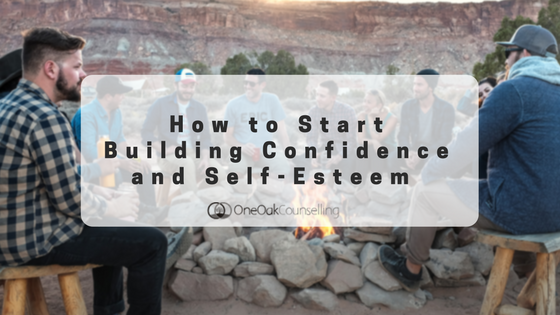Stress and worry are healthy part of life. It encourages you to take action, create solutions, and solve problems. When something is important to you, you may find that you get stressed just thinking about it.
Having a good balance of fear, tension, and worries are all part of a normal lifestyle. These emotions become a problem when they happen frequently. Constantly waking up in fear of something, or worrying about how your day will pan out are signs of anxiety.
Overcoming the constant stress, tension, and fear associated with anxiety is possible. Constant worrying and fears can be broken with a number of ways. No matter the technique or habits you pick up, it all boils down to one thing. You need to start training your brain to stay calm. Overcoming anxiety begins with experiencing life from a more rational and positive outlook.
Let’s discuss a few ways you can approach anxiety, or even just the daily stresses of life.
Take the simple steps first
Shaking away the constant fear and stress rarely happens overnight. In addition to the amount of time it takes to finally come to terms with what’s bothering you, there’s the added difficulty and complexity of seeking treatment. It can take plenty of courage to speak up about what’s bothering you. This is why it’s recommended you take the simplest steps first.
Refer back to the basics. This includes sleeping regularly, following a healthy diet, and exercising regularly. This advice is very general, but with good reason. For example, sometimes all you need is less caffeine to feel a difference in how your day goes.
You may also find the simplest steps are the easiest to take. Defaulting to general tips can in tandem with professional treatment. In times when the anxiety is overbearing, you might require more than just exercise.
Take deep breaths
You may notice your breathing begin to accelerate at an alarming rate. Your heart pumps with all its might, and your vision begins to blur. At the first few shallow breaths, you already anticipate the flush of fear and anxiety.
When the stress and fear start to take over, you need to acknowledge that it’s slowly setting in. At first, it’ll require a lot of effort for you to stop and realize what’s happening to your body. When you do find yourself panicking, the best thing to do is to take deep breaths and relax.
Practicing deep breathing techniques can train you to stop and control the initial panic of an anxiety attack. Once you’ve learned how to control sudden flashes of anxiety through deep breathing techniques, you can look into more advanced methods of overcoming your fears.
Face your fears
This is easier said than done. It’s a natural tendency to avoid the things that bother us. It’s the most effortless way to deal with a problem. When it comes to inner issues and traumas, avoidance prevents us from growing and moving onwards.
Constantly trying to avoid situations that trigger us to panic causes anxiety. We look out for the things that make us uncomfortable – like large groups of people. Avoiding a group of people suppresses that fear and tension, but it does not fix the underlying reason why we are so afraid.
Sometimes we’re afraid of things that we have control over, like a huge credit card bill. Other times, we may be afraid of unsolvable worries, however these are often something we shouldn’t be worrying about. For example, worrying about the next time your child gets sick.
Classifying your fears between solvable and unsolvable, and drafting a list of solutions you can implement can help you face your fears in the future. A mental health professional, such as a counsellor, can help you pinpoint your worries and create a plan to overcome them.
Use cognitive behavioural therapy
The most effective way to treat constant fear and stress is through cognitive behavioural therapy. With the help of a counsellor, you can use popular tools and skills that will help you heal from anxiety.
There are various tools and techniques, like the ABC Technique of Irrational Beliefs. This model was created by Albert Ellis, and is focused on the idea that irrational fears are created in one’s own mind. For example, how these fears are perceived in our own mind ultimately affects the way we react. This means that changing how we perceive our fears should change the way we react.
This can be a very complex idea, which is why you should seek professional help if you are considering cognitive behavioural therapy. Although this is a more advanced solution, it can help you rewire the irrational behaviour patterns associated with anxiety.
This isn’t a be all end all solution to anxiety – what may work for others may work differently for you.
Conclusion
As you may already know, experiencing an overwhelming amount of fear can really hurt your quality of life. There are plenty of ways to cope with the constant stress and tension associated with anxiety.
Start with implementing small changes, such as daily exercise, and slowly adopt more advanced ways to help you overcome your fears. It won’t happen overnight, and it can get tougher as time goes on.
What’s important is that you understand that you’re not alone, and that others suffer from anxiety disorders as well. If you have tried everything that you possibly can on your own, then it may be time to contact a mental health professional.
Fill out the form below or give us a call for a free consultation on how you can beat anxiety and live a better life.





